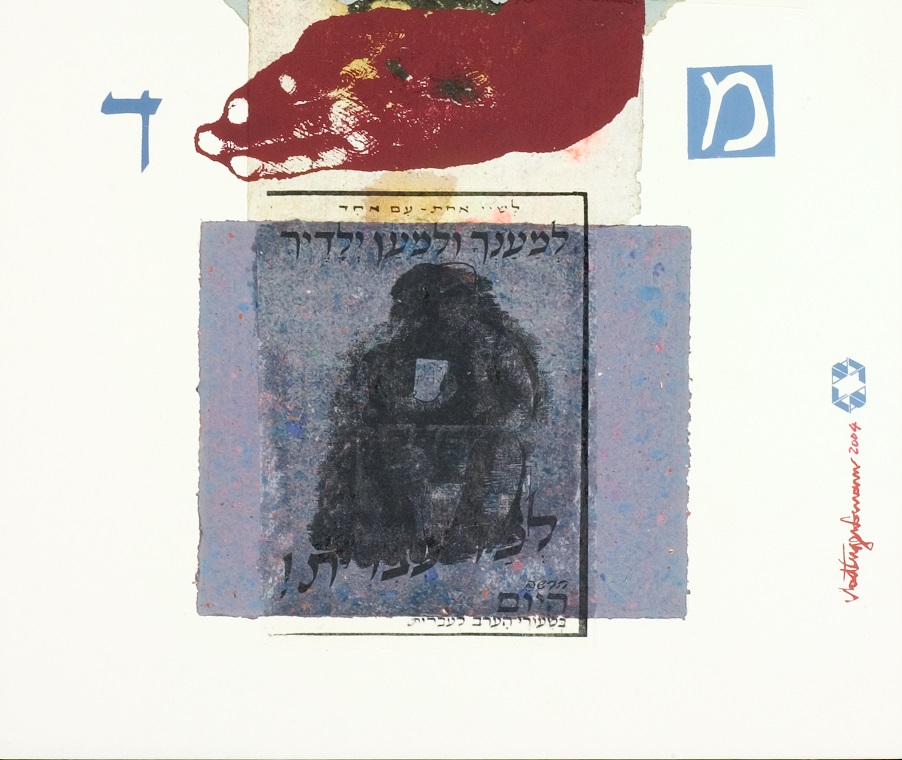The abjection in If this is a man? by Primo Levi
DOI :
https://doi.org/10.35699/1982-3053.2022.38943Mots-clés :
Primo Levi, Abject, TestimonyRésumé
This work aims to analyze the testimony If this is a man? by Primo Levi, an Italian Jew who was taken to the Auschwitz concentration camp in Poland in 1944, where he remained for months until the arrival of the red army in January 1945. The analysis of the work shows the different forms of abjection that Levi and other prisoners were subjected to since prison, transport to the concentration camp, until the release of prisoners at the end of the war. In the analysis, the abject could be understood as an unconscious process of the human psyche that can be imposed on another human being as a way to dehumanize it, in addition to also serving as a resistance tool for those who were unable to testify. To address the concept of the abject, we rely on the critical fortune of Judith Butler, Julia Kristeva, Georges Bataille, among others.
Téléchargements
Références
AGAMBEN, G. Homo sacer: sovereign power and bare life I. Belo Horizonte: Editora UFMG. 2002a.
AGAMBEN, G. Remnants of Auschwitz: The witness and the archive. 2002b.
AGAMBEN, G. Potentiality. In: HAMACHER, W.; WELLBERY. D. E. (org.), Potentialities: collected essays in philosophy. California: Stanford University Press, 1999. p. 177-219.
BATAILLE, Georges. Visions of excess: Selected writings, 1927-1939. University of Minnesota Press, 1985.
BATAILLE, Georges. Materialism. In: STOEKL, Allan (Ed.). Visions of Excess: Selected Writings, 1927-1939. Minneapolis: University of Minnesota Press, 1986a.
BATAILLE, Georges. Base Materialism and Gnosticism. In: Visions of Excess: Selected Writings, 1927-1939. Minneapolis: University of Minnesota Press, 1986b.
BATAILLE, Georges. The Language of Flowers. In: Visions of Excess: Selected Writings, 1927-1939. Minneapolis: University of Minnesota Press, 1986c.
BATAILLE, Georges. The Psychological Structure of Fascism. In: Visions of Excess: Selected Writings, 1927-1939. Minneapolis: University of Minnesota Press, 1986e.
BATAILLE, Georges. The Solar Anus. In: Visions of Excess: Selected Writings, 1927-1939. Minneapolis: University of Minnesota Press, 1986f.
BATAILLE, Georges. Factory chimney. In: The Holy Conjuration: Ensayos 1929-1929. Buenos Aires: Adriana Hidalgo, 2003.
BATAILLE, Georges. L'Abjection et les Formes Misérables. In: Sociologie Ensayos: Oeuvres Complètes, Vol. 2. Paris: Gallimard, 1970
BUTLER, Judith. Bodies that matter: On the discursive limits of sex. Taylor & Francis, 2011.
BUTLER, Judith. How bodies become matter In: PRINS, Baukje; MEIJER, Irene Costera. Feminist Studies. Florianópolis, v. 10, n. 1, jan. 2002.
BUTLER, Judith. Frames of war: When is life grievable? Verso Books, 2016. GIL, Antonio Carlos. Estudo de caso. Atlas, 2009.
HARLOW, Barbara. Resistance literature. Routledge, 1987.
KRISTEVA, J. Powers of horror. University Presses of California, Columbia and Princeton, 1982.
LEVI, Primo. If This Is a Man. 1947. Trans. Stuart Woolf, 1959. LEVI, Primo. The Truce, trans. Stuart Wolf (London: Abacus, 1979), v. 244, 1965.
LEVI, Primo. (1989). The Drowned and the Saved, 1st Vintage International Edn. NewYork, NY: Vintage International.
PROCTOR, Robert N.; PROCTOR, Robert. Racial hygiene: Medicine under the Nazis. Harvard University Press, 1988.
REGO, Patrique. Paths of Dehumanization: Analysis and Conceptual Imbrications in Tradition and Western History. Master in Philosophy, Department of Philosophy, University of Brasilia, 2014.
Téléchargements
Publiée
Numéro
Rubrique
Licence
(c) Copyright Arquivo Maaravi: Revista Digital de Estudos Judaicos da UFMG 2022

Ce travail est disponible sous la licence Creative Commons Attribution 4.0 International .
Os direitos autorais pertencem exclusivamente aos autores. Os direitos de licenciamento utilizados pelo periódico é a licença Creative Commons Attribution 4.0 (CC BY 4.0): são permitidos o compartilhamento (cópia e distribuição do material em qualquer meio ou formato) e adaptação (remix, transformação e criação de material a partir do conteúdo assim licenciado para quaisquer fins, inclusive comerciais.






